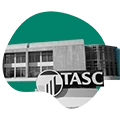Prior to consuming the information below, recipients are encouraged to review Compliance Bulletin #10.1 (dated December 2013).
The opinions expressed below are consistent with TASC’s pro-Client and pro-Participant stance, and reflect our efforts to ensure customer footing at the forefront of the decision-making processes. The final decisions in all Plan issues remain with the employer; those uncomfortable with this agile stance are welcome to opt for the more conservative approach. As we implement necessary changes and administrative process updates to comply, we will make every effort to accomplish these changes while posing no financial harm to our customers.
BACKGROUND
Non-Employer Sponsored Premium (NESP)
The IRS consistently defines an individual health insurance policy as a “qualified benefits plan” under a Section 125 cafeteria plan, thus assigning it the same status as any other qualified benefits plan (such as major medical or dental plans). And while Notice 2013-54 specifically addresses “group health plans,” clearly a Section 125 cafeteria plan is not a group health plan.
In sum, the Notice maintains (because it does not change) the fact that an individual health insurance policy is considered a qualified benefits plan. Further, employers may offer a Section 125 cafeteria plan even when they do not sponsor group health insurance. And because this benefit is not part of a Flexible Spending Account, certain contribution limits do not apply.
Non-Excepted Flexible Spending Account (NEFSA)
A footnote in Notice 2013-54 clearly states that a health FSA is not subject to the annual dollar limit prohibition, “regardless of whether the health FSA is considered to provide only excepted benefits.” Therefore, the NEFSA is simply a health FSA that is not considered an excepted benefits plan, and as such is an available option for Clients who do not offer other health coverage (i.e. group health insurance). Certain COBRA conditions may apply.
POSITION(S)
TASC remains confident
On May 13, 2014, the IRS issued a set of Frequently Asked Questions (FAQs) addressing the subject of Employer Healthcare Arrangements. Although brief, this latest publication highlighted the agency’s intention to impose a $100 per day—or $36,500 per year—excise tax (per employee) on arrangements failing to satisfy the market reforms applied to group health plans as the result of the Patient Protection & Affordable Care Act (PPACA).
TASC maintains compliance and continues to stand behind the NESP/NEFSA Plans by providing an Audit Guarantee to all enrolled employers and their Participants. TASC will support and assist enrolled employers or Participants whose Plan is challenged by the IRS. If all procedures and parameters are adhered to, TASC will assume financial responsibility for any penalty and/or interest charged as a result of an audit.
TASC continues to offer the same Sec. 125 plan (i.e. individual premium as a qualified benefit) that it has for many years. Remember, a Sec. 125 plan is not a group health plan; therefore, it is not subject to such PPACA reforms as the prohibition on annual limit maximums. (Note: Per PPACA, Public Marketplace premiums are NOT eligible for reimbursement from a Sec. 125 plan; this practice is strictly prohibited.)
It remains clear that an employer may offer an HRA or self-funded group health plan that pays individual premiums ONLY when that employer also offers a plan that complies with PPACA’s annual limits prohibition. As a result, TASC no longer supports stand-alone HRA plans. (Note: This does not affect TASC’s traditional one employee AgriPlanNOW/BizPlanNOW Plans…nor does it impact retiree HRA Plans or HRA Plans that are limited to dental and vision benefits.)
Employers dropping their group health insurance
TASC does not—nor has it ever—endorse the concept of vacating employer sponsored coverage in favor of placing a NESP/NEFSA Plan, especially in the group market (see “Impact” below). These Plans are merely a viable option for a small segment of TASC’s Clients.
IMPACT
NESP / NEFSA Plans will NOT help an employer avoid PPACA’s Employer Mandate
The Employer Shared Responsibility provision require “large employers” (i.e. those employing 50 or more full-time equivalents) to offer coverage that is affordable AND of minimum value to full-time employees and their dependents. Large employers failing to offer such coverage are subject to the “pay or play” penalty.
Employers Not Offering Coverage: If an employer does not offer minimum value coverage and one or more full-time employee receives a premium credit or cost-sharing subsidy through the Public Marketplace, the penalty is $2,000 per year per full-time worker.
Employers Offering Coverage: If an employer offers minimum value coverage at a cost that is not affordable, and one or more full-time employees receive a premium credit or cost-sharing subsidy through the Public Marketplace, the penalty is $3,000 per employee receiving the credit/subsidy.
Note: IRS Notice 2013-45 delayed enforcement until Jan. 1, 2015. Meanwhile, for employers with between 50 and 99 full-time equivalent employees, compliance is generally not required until the 2016 Plan Year.
MOVING FORWARD
Continued monitoring of PPACA (and others in our space)
The above positions reflect countless hours of research by TASC’s compliance, governmental affairs, and legal (both in-house and external) departments. Of course our study of PPACA implementation—not to mention the myriad of conflicting interpretations—is ongoing. This vigilance embodies our commitment to serve and our dedication to ensuring the best possible outcome for our Clients and Participants.
Future Communications
While TASC is aware that many view the recent guidance as an expansion of the limitations defined for “group health plans,” we do NOT share this opinion. Our analysts have yet to see definitive guidance that either converts a Section 125 plan to a “group health plan”’ (i.e. making a Sec. 125 plan subject to an SPD, DOL regulations, etc.) or limits the qualified benefits offered under Sec. 125.
These are TASC’s positions; any change in direction will ONLY come in the form of administrative guidance, Congressional action, or a court decision/ruling. We believe it is in TASC’s best interest to redirect our energy toward other areas material to the customer.


























